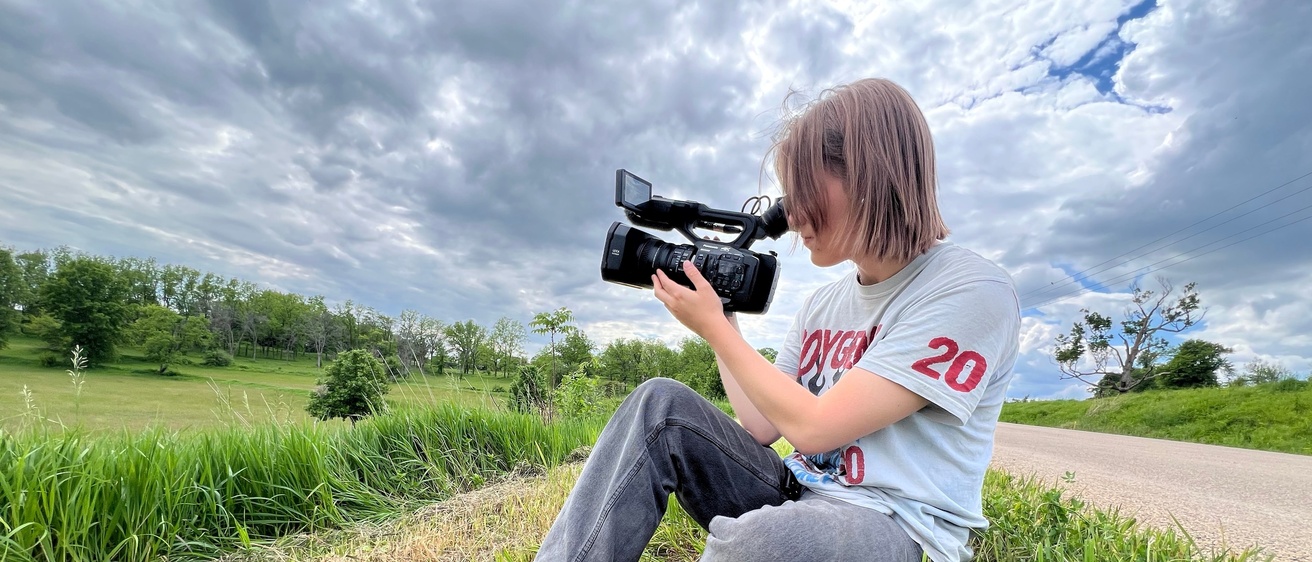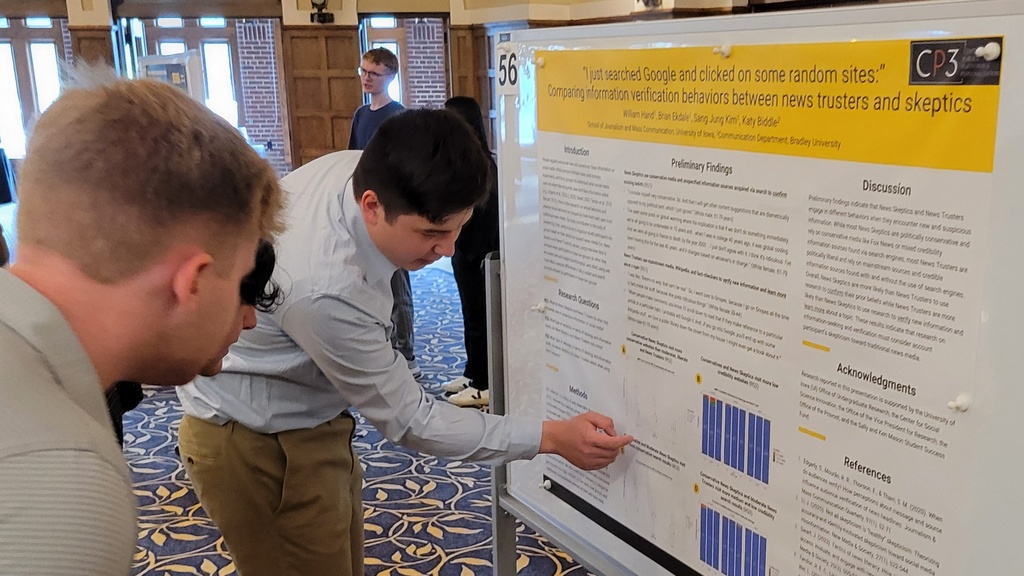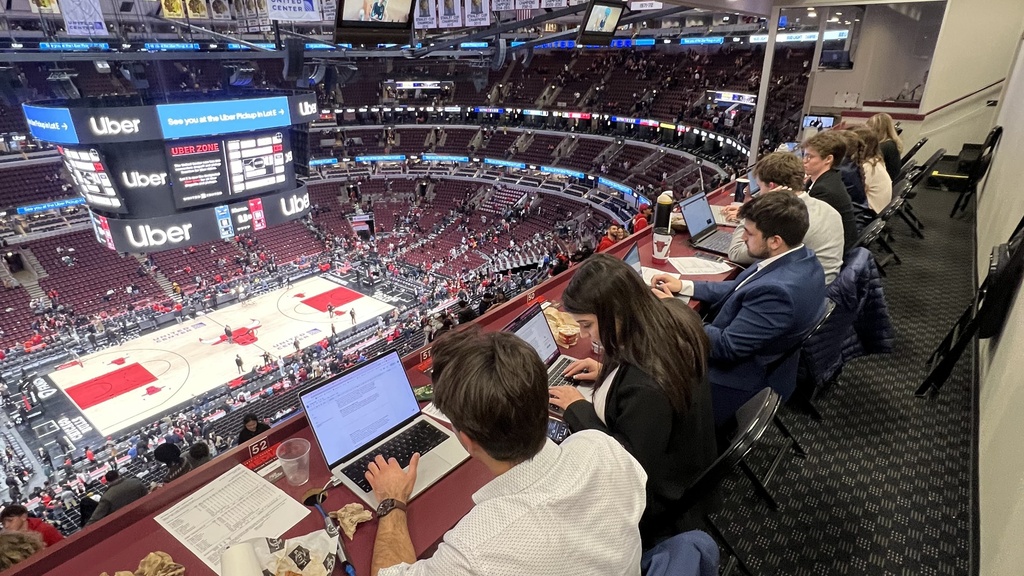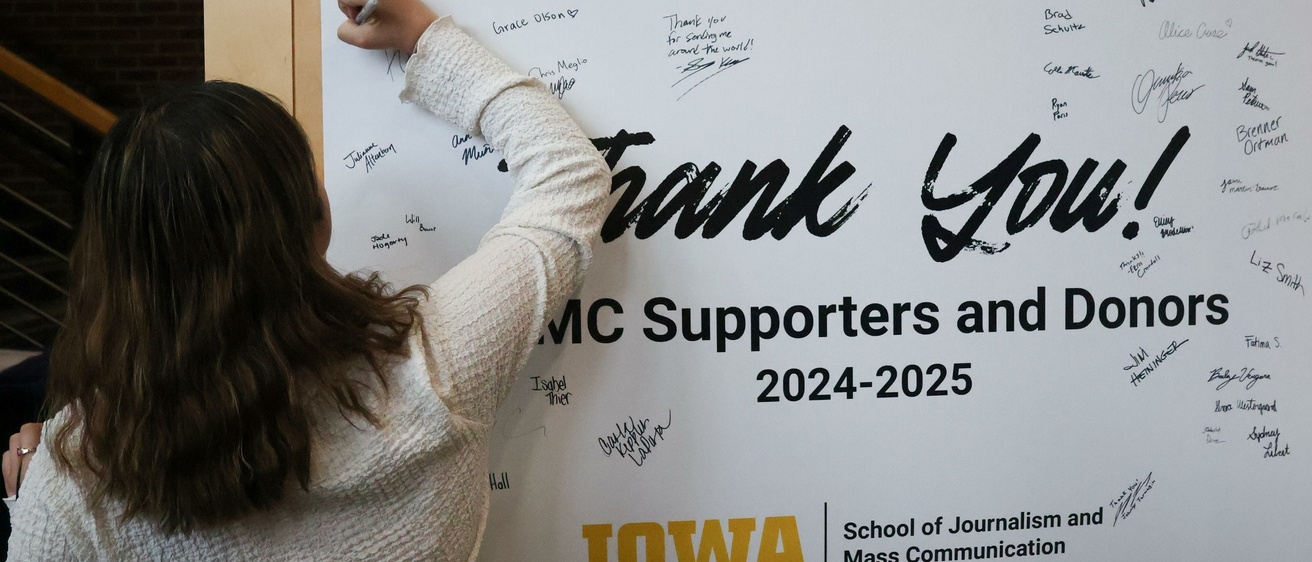Main navigation
SCRIPT Your Experience
The School of Journalism and Mass Communication is committed to preparing students for meaningful work beyond graduation by supporting experiential education unique to the journalism, strategic communication, and media industries. Beginning in Fall 2025, all new journalism and mass communication majors are required to complete one SCRIPT experiential learning course prior to graduation. These courses immerse students in real-world situations and encourage them to develop new skills, attitudes, and ways of thinking.

"Requiring experiential education for JMC majors ensures that every student has equal access to transformative experiences, making participation in these opportunities a certainty rather than by chance."
Beyond the Classroom | |
|---|---|
S | Study Abroad |
C | Community Engagement |
R | Research |
I | Internship |
P | Professional Practice |
T | Teaching |
What is experiential learning?
Experiential learning is the practice of learning through applied experience - curricular or co-curricular - and guided reflection on those experiences (Kolb, 1984). Students "learn by doing" as they move through a cycle of active engagement, reflective observation, theory formation, and theory application.

Explore SCRIPT
Students can—and often do—engage in more than one form of experiential learning during their undergraduate studies. There are a variety of courses to explore within each category.
Getting Started
Step 1
Review the SCRIPT course options to discover what type of experience resonates with you. Only one course is required to graduate, but students can—and often do—engage in more than one form of experiential learning.
Step 2
Determine the best semester to fit an experience into your academic plan. Some courses are exploratory while others have prerequisites and may not be offered every semester. Most students complete their SCRIPT experience prior to enrolling in a capstone course.
Step 3
Register for an approved course on MyUI. A list of approved courses can be found within each category of SCRIPT.
FAQs
Why should I care about experiential learning?
Experiential learning facilitates positive outcomes on student learning, retention, and graduation rates, especially for first-generation, Pell-eligible, and underrepresented minority students. These opportunities provide students with academic advantages, career development benefits and increased earning potential.
University of Iowa students who participate in experiential learning:
- Earn a post-graduation salary approximately $7000 higher than those who do not participate
- Receive more full-time job offers in their field of study after graduation than those who do not participate
- Graduate within four years at higher rates than those who do not participate
Does SCRIPT apply to me?
Undergraduate students who declare a major in journalism and mass communication (JMC) in Fall 2025 or after are required to successfully complete one SCRIPT course prior to graduation. Students who declared a major in JMC before Fall 2025 do not need to complete an experiential learning course, but are still encouraged to do so.
The SCRIPT requirement does not apply to students majoring in Sport Media and Culture (SMC).
How do I fulfill the requirement?
You must complete at least one approved course within any category of SCRIPT.
- There is no minimum semester hour requirement. SCRIPT can be satisfied with 0, 1, 2, 3, or 4-credit courses.
- The approved course must be completed with a satisfactory or passing grade.
- The course number must be listed on your transcript to count toward the degree requirement.
Do 0-credit courses count?
Yes. There is no minimum semester hour requirement to fulfill SCRIPT.
SCRIPT courses with 0-credit options are offered to:
- Eliminate tuition and fees associated with enrollment
- Provide transcript notation of your participation in an experience
- Fulfill the SCRIPT requirement for experiences that are paid or do not offer academic credit
When should I register?
You can register for an experiential learning course at any point during your undergraduate studies. Some courses are more exploratory, while others are geared toward professional preparation and may have prerequisites. Most students complete a SCRIPT experience prior to enrolling in their capstone course.
Is there a course to guide me?
The department offers a First-Year Seminar and an introductory course to guide students through their SCRIPT options. These courses also connect students to career resources and faculty experts in the field of journalism and mass communication.
JMC:1000 First-Year Seminar: SCRIPT Your Experience in Journalism and Mass Communication (1 s.h.)
JMC:1010 Introduction to Experiential Learning (1 s.h.)
Who can help?
Our Experiential Learning Specialist is available to assist journalism and mass communication students with SCRIPT course options, enrollment procedures, and completing the experiential learning degree requirement.
University Resources
The University of Iowa provides general information concerning research, internships, studying abroad, and experiential learning. For more information about these learning opportunities, please visit the following links:






